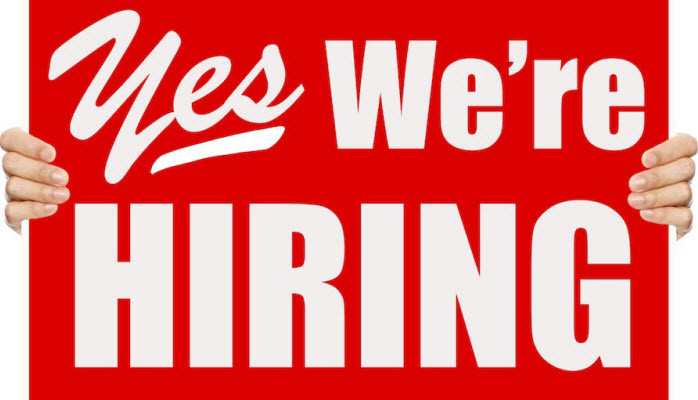
What Your Management Class Didn’t Teach You: How to Hire Great People
The employee-hiring process always has the potential to be a stressful one. Hire the wrong person, and it causes lost time and money for the organization. Hire the right person though, and team momentum and getting results get a huge boost.
Here’s a step-by-step list* for all leaders to consider as you hire your next employee. How do you evaluate their potential? How many different ways can you evaluate them? What are the attributes you need to consider to help avoid significant time and money lost?
Tools for Insight and Evaluation
The following areas are commonly used to gain insights into an individual’s potential for success in a particular position. Perhaps you have some favorites that you use regularly. Try adding a new evaluation tool, test it, and see if it improves your evaluation and hiring process –
- Résumé
- Assessments
- References
- Recommendations by people you don’t know
- Recommendations by people you do know or are known to someone you know
- Past work history
- Education and training patterns and results
- Past Achievements
- Interview
- Interview by someone in the company of the opposite sex from the primary interviewer. Women and men often have very different insights in an interview.
- Current life situation, such as a willingness to relocate
- Expressed goals for the future
- Attitude and other intangibles
- Trial with a short-term project, contract, or temporary basis
Key Factor Considerations
If you’re initiating a long-term work relationship, it’s important to get to know the potential employee in a holistic sense by looking broad and deep to understand the total person. The following eight factors are recommended to be considered in the hiring process to avoid any surprises after you’ve hired the employee. These factors aren’t necessarily intended to be interview questions, but they can serve as a general guide to help you evaluate the potential match -
- Passion
- What does the person really want to do?
- How strong is the desire?
- What are the motivating factors?
- Natural Talents (behavioral strengths, personality, temperament)
- How closely do the candidate's strengths and struggles match what is most commonly found in those who succeed in this or similar positions? Use assessment services to identify talents. Remember, you’re not looking for average talents for the key functions of the position. For those areas, the individual should be using his or her best talents—those that have the highest potential for immediate use as well as further development. Also, these talents should be ones that the person is highly motivated to use. For instance, corporate trainers usually love to prepare and then perform by presenting material to a group. A trainer who does not have a passion for communicating information to a group is likely to be a boring and unmotivated speaker.
- Character and Integrity
- Is this person reliable?
- Is this person ethical?
- Is his or her work ethic compatible with the job, mission, and organization?
- Experience
- What type of work has he or she done in the past?
- How much of his or her experience will transfer into the position you are filling?
- What has been the past level of achievement?
- Are you considering the candidate more for now or growing him/her into a position later?
- Job-Related Skills
- Based on past performance, has the candidate demonstrated the skills that are needed in the position?
- Chemistry and Diversity
- How well will this person fit the work team?
- Can he or she quickly become part of the group?
- Is it likely that he or she will accept others on the team and be accepted by them?
Caution! Don't make the common mistake of seeing "different as wrong." Diversity is essential to a competitive workplace. Also, remember that first impressions can be biased by our past experiences.
- Values
- Will your organization’s products, services, and culture be complementary to the values of the individual and vice versa?
- Will there be conflicts? If so, how significant are the potential conflicts?
- Can everyone on the team accept the conflicts and still be good teammates?
- Retention and Career Progression
- Consider how long you would like to keep this person in this position.
- Try to determine how long the candidate would want to stay in it. Evaluate how much growth potential the person has available in the position.
- How strongly is the candidate motivated toward career progression versus stability? Is this person looking for a stepping-stone or a long-term relationship?
Taking the necessary time to evaluate candidates during the hiring process is worth the effort. Please share below any additional thoughts or suggestions on this topic.
LE
*These suggestions can serve as a supplement but should not supersede your organization’s human resources, policies and procedures.
**********
As president of Leadership Freedom® LLC, a leadership and team development, consulting and coaching company, Lee Ellis consults with Fortune 500 senior executives in the areas of hiring, teambuilding, human performance, and succession planning. His media appearances include interviews on networks such as CNN, CBS This Morning, C-SPAN, ABC World News, and Fox News Channel. His latest behavioral assessment service is the Leadership Behavior DNA™ Discovery Process. In total, his assessments have been used by more than 200,000 individuals and are the instrument of choice in many organizations. Learn more at www.LeadershipBehaviorDNA.com.
Dud - thanks for the kind words. Grateful for your positive role model as a leader and veteran!
Sir . . . Bill Bridges and I spent 5 hours today visiting in Denver . . . And we remembered you with respect. Thank you for being a role model for me. Give Mary my love and regards. In HIS Grip, Dud